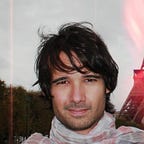Freedom in a Plural and Interconnected World
WHEN discussing the concept of freedom,the classic distinction between “negative” and “positive”freedom is usually a good place to start. For those not familiar with this distinction, “negative” freedom deals with the absence of external obstacles or constraints to an agent’s actions while “positive” freedom refers to the degree of self-determination or control one has over one’s own destiny. This distinction is usually summarized as the difference between freedom from something (negative freedom) and freedom to become something (positive freedom).
Negative freedom usually falls within the realm of political theory as its main objective is to prevent external coercion and promote the widest possible sphere of action within which an individual is sovereign and within which an individual can pursue his projects — provided that he does not interfere with the spheres of others. The demarcation of this “sphere of non-interference” is a political affair as the State is both a potential intruder and a guarantor of citizens’ freedom. Pragmatist philosophers from John Dewey to Richard Rorty have strongly sided with democratic citizenship as the most effective way to promote, institutionalize and legally codify the set of rights and responsibilities associated with negative freedom. In true pragmatic fashion, democracy is not assumed as a metaphysically superior or intrinsically justifiable theory but instead, it is argued to be the best answer we have provided so far for successfully dealing with the exigencies of negative freedom. Pragmatism is not concerned with establishing democracy’s fundamental superiority but instead with showing democracy’s arguable advantages. As a fellow pragmatist, I am broadly content with this take on negative freedom.
However, where I believe pragmatism has traditionally fallen short is in regard to positive freedom. Positive freedom’s key objective is to promote autonomy — to make sure that our beliefs, desires and values are self-determined. Unfortunately, the pragmatic tradition has sided too swiftly with Political Liberalism and has left the practice of selecting beliefs, desires and values (selecting our worldview) to the private individual. The key political preoccupation of pragmatism has been to secure negative freedom through an ongoing democratic process, but once the “sphere of non-interference” is demarcated, pragmatism has trusted the individual to make a “reasonable” private decision regarding his worldview while tolerating that of others. As Rorty summarized: “All we should do is to point out the practical advantages of liberal institutions in allowing individuals and cultures to get along together without intruding on each other’s privacy, without meddling with each other’s conceptions of the good”¹
The key argument I want to put forward is that democracy is not only a great pragmatic way to secure negative freedom but it is also a powerful tool for bringing about a concept of positive freedom that is better suited for plural and interconnected societies like ours. Rorty’s suggestion that we should not “meddle with each other’s conceptions of the good” was pragmatically correct for relatively uniform and disconnected societies. But the fact is that today, either we like it or not, our conceptions of the good are precisely bound to meddle and clash with each other’s. In the hyperconnected world we live in today our conceptions of the good are intertwined beyond repair. Our world is not only plural but increasingly interlinked and exponentially socialized. As good pragmatists, we need to look for a fresh strategy that better suits these new conditions.
Here is my proposal: where others see an unavoidable clash of irreconcilable world-views I see a unique opportunity for expanding positive freedom to levels we have never reached before in human history. The internet provides an ideal medium for introducing the virtues of democracy and ongoing dialogue into our process of selecting beliefs, desires and values — into the way we construct our worldview. Interconnectedness amplifies our positive freedom because what we choose to belief is increasingly assimilated from within a constant awareness of alternative options. What the internet revolution helps us realize is that as much as the democratic process is the best way to secure negative political freedom, a democratic process of ongoing dialogue and exchange is also the best way to construct our beliefs, desires and values and to enlarge our positive freedom. As Kant foresaw, what is important for expanding our autonomy is not the actual content of our beliefs but the process through which we acquire and maintain them. He thought conformity to the universal moral law — the Categorical Imperative — offered such a process; I disagree: only a democratic process of ongoing dialogue and open exchange can make us positively free as the process itself ensures that we are not enslaved by our own private beliefs.
To be free in a truly positive way we need to stand above belief, we need to constantly grasp our own worldview as an ongoing process of democratically coping with the world. Building a successful and peaceful society in the age of interconnected plurality requires a pragmatic reconstruction of our liberal idea of autonomy and positive freedom. To be autonomous today is not to be able to privately select my own worldview; we require more than that as privately justified beliefs and values are nothing but fuel for fundamentalism in an era of growing linkages. To be autonomous today we need to stand above our own beliefs and values and the best way to do so is by inserting them into a democratic, open and ongoing conversation about which beliefs and values are best suited for building a peaceful, plural and sustainable world that maximizes the well being of its inhabitants. The exigencies of our diverse and intertwined condition push us to keep the democratic conversation going not only from without (negative freedom) but also from within (positive freedom).
1 Richard Rorty, On Ethnocentrism
